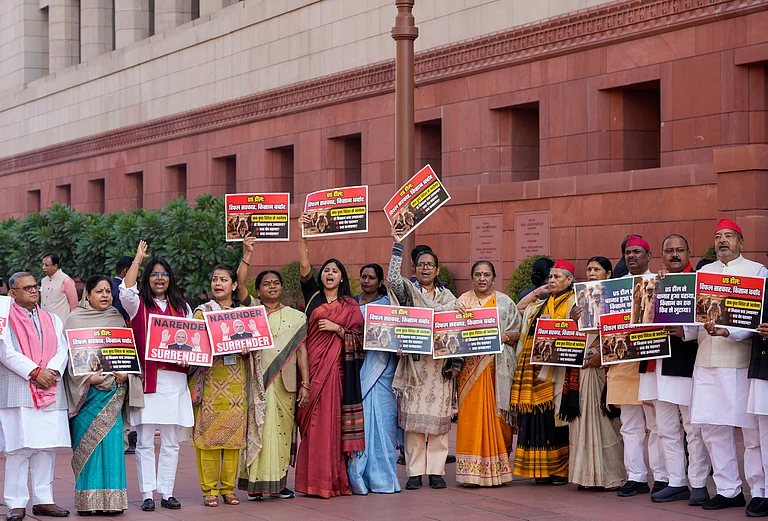On October 2, the entire nation celebrates the birth anniversary of the Father of the Nation. The ideas of Mohandas Karamchand Gandhi include Satyagraha, nonviolence, and truth in contemporary terms. Mahatma Gandhi's thoughts and teaching motivate everyone. The term Gandhigiri became popular due to its usage in the 2006 Hindi film, 'Lage Raho Munna Bhai'. On the occasion of Gandhi Jayanti, some of the celebs open up about how they practice Gandhigiri in their life.
Kavitta Verma
I am truly grateful for the profound legacy of Gandhiji's freedom struggle. When I delve into his book "My Experiments with Truth," I am struck by the profound notion that being true to oneself is a journey towards liberation. This insight teaches us that by staying authentic and honest with ourselves, we embark on a path of self-discovery and emancipation. Gandhiji's life exemplifies the power of love and compassion. He showed that loving and assisting others is not only a noble pursuit but also a fundamental key to achieving peace in our lives and in the world. Through his dedication to non-violence and his unwavering commitment to justice, he demonstrated the transformative potential of kindness and empathy in fostering harmony among individuals and nations. Gandhiji's teachings continue to resonate, reminding us that the pursuit of truth and the practice of love are timeless principles that can lead us toward a more peaceful and just world.
Anupama Solanki
I think using Gandhigiri, which means peaceful methods like Gandhi used, doesn't work well these days. People nowadays understand Bhagat Singh's approach, which is more forceful. The situation has changed, and being patient with Gandhigiri can be tough. I choose Gandhigiri when I believe someone is smart or powerful, but if you try it with foolish or cruel people, they will harm you repeatedly. Gandhi knew the British were clever and educated, so he used peaceful methods that suited the situation. I use 40% Gandhigiri and 60% BhagatGiri, depending on who I'm dealing with.
Aadesh Chaudhary
Mohandas Karamchand Gandhi, affectionately known as Bapu, was undeniably a remarkable individual whose wisdom and principles continue to inspire generations. His honorific title, "Bapu," reflects the deep respect and admiration people hold for him. One of the most profound lessons I've gleaned from Gandhi's life is the significance of patience and unwavering dedication. Another invaluable lesson from Bapu is the importance of consistency and persistence. Gandhi's life exemplified the idea that one should persevere relentlessly toward their goals. His unyielding commitment to the cause of Indian independence, marked by nonviolent resistance, serves as a beacon of determination. I've taken this principle to heart, understanding that enduring dedication and unwavering effort are key factors in achieving one's aspirations. Gandhi's legacy continues to illuminate the path towards a more patient, peaceful, and persistent existence for us all.
I believe in Mahatma Gandhi's wise words: "bura na dekho, bura na bolo and bura na suno." This means we should always try to be good and not hurt others with our words or actions. Gandhi was all about simplicity and not using violence. He did many important things like ending untouchability, bringing Hindus and Muslims together, and promoting education. In my life, I try to follow Gandhi's ideas. I believe in being kind, understanding, and responsible in society. Gandhi's teachings remind me to work for a world where everyone is treated well, no matter where they come from or what they believe. His legacy keeps inspiring me to be empathetic, peaceful, and fair in everything I do
Prateik Chaudhary
In today's world, where conflicts and divisions persist, Gandhi's teachings offer a timeless and invaluable message of unity, compassion, and tolerance. His emphasis on the importance of understanding and respecting one another's perspectives remains relevant in fostering harmony and cooperation in a diverse global society. The saying, "A man is but the product of his thoughts. What he thinks, he becomes," encapsulates a profound truth about the power of our thoughts in shaping our lives. Much like Mahatma Gandhi, this statement emphasizes the significance of staying true to oneself, regardless of the potential consequences.


























